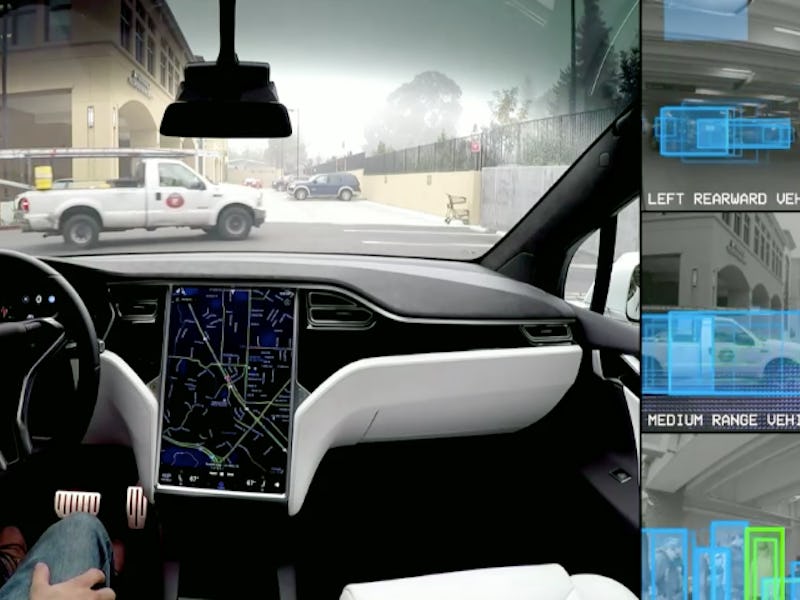For anyone with a fear of flying, Elon Musk’s vision that Teslas will soon be able to whisk their owners autonomously across the country might sound pretty appealing. At a TED Talk in Vancouver on Friday, the Tesla CEO confirmed that we could see the technology for self-driving car trips from L.A. to New York by the end of 2017 — and soon enough you might even be able to snooze the entire way.
“We’re still on track for being able to go cross-country — from L.A. to New York — by the end of the year, fully autonomous,” Musk said.
TED curator Chris Anderson, who was conducting the interview, sounded almost incredulous: “So by the end of the year, you’re saying someone’s going to sit in a Tesla, without touching the steering wheel, tap in New York, and off it goes, wouldn’t have to ever touch the wheel?”
“Essentially, November or December of this year, we should be able to go all the way from a parking lot in California to a parking lot in New York, no controls touched at any point during the entire journey,” Musk confirmed.
And it’s not just L.A. to New York; once you’re on the highway, Musk said the Model S and Model 3 should be able to go anywhere on the highway system in any given country. “So if you were going from L.A. to New York, now you’re going from L.A. to Toronto.”
Of course, regulation stands in the way of this becoming a reality right away. But Anderson pushed further, asking how far away Tesla was from creating a vehicle in which a person could get in, plug in their cross-country coordinates, fall asleep, and wake up at their destination.
“I think it’s about two years,” Musk said.
For Musk, the final hurdle prohibiting the autonomous take-over lies in mastering the probabilities — even being safe in a Tesla 99.9 percent of the time isn’t going to be good enough. “If a car crashes one in 1,000 times, you’re probably still not going to be comfortable falling asleep. You shouldn’t be, certainly,” he said.
If that probability falls to once in 100 lifetimes, he says, or 1,000 lifetimes, users will feel more assured. Musk is also quick to point out the logic disparity when it comes to people being comfortable with the probability of crashing their own cars. At the least, he says, “The autonomy system is likely to mitigate the crash … there’s some chance that any time a human driver gets in the car that they will have an accident — that is their fault. It’s never zero.”
The Model 3 will be starting production in July. The question is, how much better will autonomous cars have to be than human drivers before we’re all falling asleep at the wheel?
